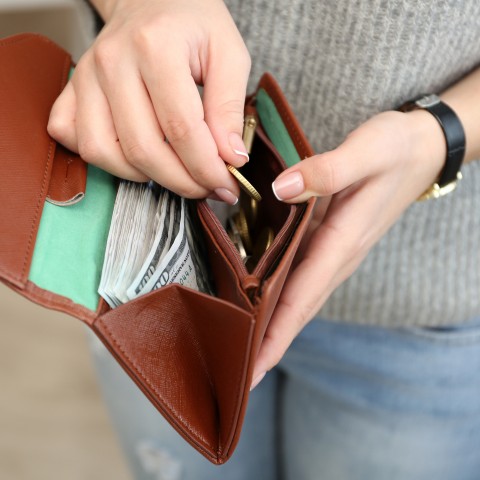
You can learn quite a bit of a language through questions.
Whether you’re traveling or hanging out in your hometown, any conversation you have with a native speaker in Arabic is going to involve a little bit of Q-and-A.
In fact, this is especially true for Arabic, since it’s a language not as commonly learned by foreigners. People are going to be rather curious about you as, in all likelihood, you’re going to be the first Arabic-speaking foreigner they’ve ever met.
Check out these common Arabic questions and answers, so that you have a leg up when the conversation starts!
 Table of Contents
Table of Contents
- What’s your name?
- Where are you from?
- Do you speak Arabic?
- How long have you been studying Arabic?
- Have you been to ___?
- Can you speak our dialect?
- Do you like the food?
- What are you doing?
- How is your family?
- How much is it?
- Conclusion
1. What’s your name?

If you make a friend in Arabic, you’ll definitely need to be able to ask for their name!
Talking to a man:
ما اسمُكَ؟
masmuka?
“What’s your name?”
Talking to a woman:
ما اسمُكِ؟
masmuki?
“What’s your name?”
To answer, simply say ʾismī followed by your name. You’ve successfully introduced yourself in Arabic!
2. Where are you from?
Talking to a man:
من أين أنت؟
min ayna anta?
“Where are you from?”
Talking to a woman:
من أين أنت؟
min ayna anti?
“Where are you from?”
This may be one of your first introductions to the complexities of grammatical gender in Arabic. Fortunately, this is a pretty easy one to deal with!
Literally, you’re saying “From where you?” The last word, “you,” changes its vowel from ‘anta to ‘anti depending on whether you’re speaking to a man or woman.
And although we end the question with “you” in Arabic, we end the answer with the location:
أنا من نيويورك.
ana min New York.
“I’m from New York.”
3. Do you speak Arabic?
Talking to a man:
هَل تَتَحَدَّث اللُغة العَرَبِيَّة؟
hal tataḥaddaṯ al-luġah al-ʿarabiyyah?
“Do you speak Arabic?”
This question has an interesting grammatical similarity to the English version: that little word hal. It functions as a dummy particle for questions, just like “You speak Arabic,” turns into “Do you speak Arabic?” with the addition of “do.”
Now, the important thing is that you make an effort. You can do a lot better than saying “No, sorry,” in English and walking away!
عَفوَاً، أَنا أَتَكَلَّمُ فَقَط القَليل.
ʿafwan, ʾanā ʾatakallamu faqaṭ al-qalīl.
“Sorry, I only speak a little.”
That should just about cover it if someone happens to come up and ask you this question (it’s rare, but possible!). You should take a glance at this page of the names for languages in Arabic and imagine yourself asking others!

4. How long have you been studying Arabic?
How’s your accent? The better it is, the better you get to feel when you answer this question about your study habits.
Talking to a man:
كَم مَضى لَكَ في دِراسَةِ العَرَبِيَّة؟
kam maḍā laka fī dirāsaẗi al-ʿarabiyyah?
“How long have you been studying Arabic?”
Talking to a woman:
كَم مَضى لَكِ في دِراسَةِ العَرَبِيَّة؟
kam maḍā laki fī dirāsaẗi al-ʿarabiyyah?
“How long have you been studying Arabic?”
Broken down a little more, the structure of this question is “How much time has passed to you in studying Arabic?”
That “to you/me” structure is crucial, since it will also play an important role in the answer.
مَضى لي شَهر.
maḍā lī šahr.
“For one month.”
The answer is pretty much the same structure: “To me one month has passed.”
5. Have you been to ___?

Everybody’s got something in the country they want to show you. Definitely get ready for Arabic questions like this as you travel around!
Talking to a man:
هَل ذَهَبتَ إلى ___مِن قَبل ؟
hal ḏahabta ʾilā ___ min qabl ?
“Have you been to ___ before?”
Talking to a woman:
هَل ذَهَبتِ إلى ___مِن قَبل؟
hal ḏahabti ʾilā ___ min qabl?
“Have you been to ___ before?”
Pay attention to the word order here. We start with that question tag hal, then immediately we have the verb “you went.” In English, that conjugation has two words, and we split them around the pronoun. In Arabic, the verb contains the pronoun, so it gets accomplished in just one word!
لا، لَم يَسبِق لي أَن ذَهَبتُ إلى ___ مِن قَبل.
lā, lam yasbiq lī ʾan ḏahabtu ʾilā ___ min qabl.
“No, I haven’t been to ___ before.”
Add whatever location is necessary here. Truth be told, you could simply say la, meaning “no,” but it’s more polite to use the full sentence.
6. Can you speak our dialect?
Many foreigners in Arabic classes study Modern Standard Arabic, but the vast majority of people you meet and speak Arabic with are going to strongly prefer speaking in their regional dialect.
Earlier, we discussed the Arabic phrase for “Do you speak Arabic?” but now we’ll learn it in Egyptian and Moroccan Arabic (Darija), two very different yet commonly learned Arabic variants.
Talking to a man:
بِتِتكَلِّم عامِّيَّة؟
bititkallim ʿāmmiyyah?
“Do you speak Egyptian Arabic?”
Talking to a woman:
بِتِتكَلِّمي عامِّيَّة؟
bititkallimi ʿāmmiyyah?
“Do you speak Egyptian Arabic?”
واش كتعرف دارجة؟
waš ktʿref dāriǧah?
“Do you speak Darija?”
As you can see, the dialects naturally have their own words for a “colloquial variety” that isn’t fusha (MSA). And even from these examples, you can see that the question is quite different in all three—major respect for taking more on!
7. Do you like the food?

Talking to a man:
هَل أَعجَبَكَ الطَعام؟
hal ʾaʿǧabaka al-ṭaʿām?
“Do you like the food?”
Back to MSA again. People are always going to want to know how you feel about food in Arab countries, especially because it tends to be so different from place to place.
Again, we’re dealing with that grammatical particle hal for asking a yes-no question.
What if you don’t actually like the food that much? As unlikely as that situation is, you should probably have a pleasant and polite reply handy, just in case.
كُلُّ شَيْءٍ لَذيذ!
kullu šayʾin laḏīḏ!
“It’s all delicious!”
أنا لست متعودا مع الطعام
Ana lasto motaeawidan maea taeam baead.
“I’m not really used to the food yet.”
8. What are you doing?
If you’re young-looking, people are probably going to assume that you’re a student of some sort, even more so in a city with a big and well-known university.
Talking to a man:
هَل أَنتَ طالِب؟
hal ʾanta ṭalib?
“Are you a student?”
Talking to a woman:
هَل أَنتِ طالِبَة؟
hal ʾanti ṭalibah?
“Are you a student?”
Note how easy questions and answers in Arabic like these are. You just have to remember the feminine and masculine forms of the pronoun and noun, but there’s no verb to worry about!
Here’s an example of a question that might require a verb, though:
Talking to a man:
ماذا تَعمَل؟
māḏā taʿmal?
“What do you do for a living?”
Talking to a woman:
ماذا تَعمَلين؟
māḏā taʿmalīn?
“What do you do for a living?”
However, the grammar in the answer is just as simple as in the first question. Just throw the words into the sentence!
أنا مُصَوِّر.
ʾanā muṣawwir.
“I am a photographer.”
9. How is your family?
In most Arab countries, asking about another person’s family is considered a polite small talk question. Here’s how you do it!
كَيْفَ حالُ عائِلَتِك؟
kayfa ḥalu ʿāʾilatik?
“How is your family?”
Now, what if you happen to know that the person isn’t married, or is married with no children? Trick question. You still ask the same thing. It’s actually not polite to ask about somebody’s spouse unless you know them personally.
No matter what you ask, the response is very likely going to be something like this:
كُلُّ شَيْءٍ بِخَيْر، الحَمدُ لله.
kullu šayʾin biḫayr, al-ḥamdu lillah.
“All well, praise God.”
It’s common knowledge among Arabic speakers that the phrase ٱلْحَمْدُ لِلَّٰهِ (al-ḥamdu lillah), or “thanks be to God,” and other religious phrases are used more commonly in Arabic than in English, by both Muslims and Christians, and even when speaking to people who aren’t religious.
10. How much is it?

Wrapping up, we have an extremely useful question for everything from shopping to dining out.
بِكَم هَذا؟
bikam haḏā?
“How much is it?”
Asking for the price in Arabic is dead easy. All you have to do is put the question word “how much,” which is bikam, before the pronoun “it,” and you’re already finished!
بِجُنَيْهَيْن.
biǧunayhayn.
“It’s two pounds.”
Egypt calls their currency pounds as the United Kingdom does. The interesting grammar point here is that we’re not actually saying the sentence “It costs two pounds.” Instead, the literal translation is “with two pounds,” and all that gets expressed in a single Arabic word.
11. Conclusion
If you happen to find someone willing to help you practice Arabic (and thanks to the kindness of Arab people, you will, whether or not you offer to help them with English), you can use these simple Arabic questions and answers as a great jumping-off point for fluency practice.
Record answers that start from just the bare minimum that’s required to not be rude, then try expanding. Start with answers that restate the question, such as the examples in this article, and then move on to answers that hold a dash of your own creativity.
And if you want to get a headstart without a speaking partner, sign on to ArabicPod101.com right now and take a look at our lessons about questions!
Before you go, why not start practicing right away in the comments section? Try answering one or more of these questions in Arabic. We look forward to hearing from you!










